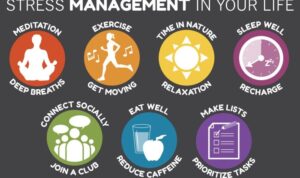Health and Fitness Goals are the key to unlocking your full potential. From weight loss to muscle gain, let’s dive into how setting clear goals can transform your journey to wellness.
Get ready for a ride filled with tips, strategies, and insights that will revolutionize your approach to health and fitness.
Importance of Setting Health and Fitness Goals

Setting health and fitness goals is crucial for personal growth as it provides direction, motivation, and a sense of accomplishment. By establishing clear objectives, individuals can track their progress and make necessary adjustments to their lifestyle to achieve optimal results.
Staying Motivated and Focused
- Setting specific goals, such as running a 5k race in a certain time or losing a certain amount of weight, gives individuals a target to work towards.
- Having a clear goal in mind helps to maintain focus and stay motivated, especially during challenging times.
- Regularly reviewing progress and celebrating small victories along the way can boost morale and keep individuals on track towards their ultimate health and fitness goals.
Achieving Long-term Success
- Goal setting plays a crucial role in achieving long-term success in health and fitness by providing a roadmap for progress and growth.
- Setting realistic and achievable goals helps individuals develop healthy habits that can be sustained over time, leading to lasting results.
- By breaking down larger objectives into smaller, manageable steps, individuals can create a sustainable plan for long-term health and fitness success.
Types of Health and Fitness Goals
Setting health and fitness goals is crucial for achieving overall well-being. There are various categories of goals that individuals can focus on to improve their physical fitness and mental health. It is important to set realistic and achievable goals in each category to ensure progress and motivation. By setting a variety of goals, individuals can take a well-rounded approach to their health and fitness journey.
Weight Loss Goals
- Setting realistic weight loss goals can help individuals achieve a healthy body weight and reduce the risk of chronic diseases.
- By focusing on sustainable weight loss targets, individuals can avoid crash diets and develop healthy eating habits for long-term success.
- Weight loss goals should be specific, measurable, achievable, relevant, and time-bound (SMART) to track progress effectively.
Muscle Gain Goals
- Increasing muscle mass can improve strength, metabolism, and overall physical performance.
- Setting muscle gain goals can help individuals track their progress in the gym and adjust their workout routines accordingly.
- It is essential to set realistic muscle gain targets based on individual fitness levels and training intensity to avoid injury and burnout.
Endurance Goals
- Improving endurance can enhance cardiovascular health, stamina, and athletic performance.
- Setting endurance goals such as running longer distances or completing high-intensity interval training (HIIT) workouts can push individuals to improve their fitness levels.
- Gradually increasing the duration and intensity of endurance workouts is key to avoiding overtraining and achieving sustainable progress.
Flexibility Goals
- Enhancing flexibility can reduce the risk of injuries, improve posture, and enhance overall mobility.
- Setting flexibility goals such as touching toes, performing yoga poses, or improving range of motion can help individuals increase their joint flexibility and muscle elasticity.
- Consistent stretching and mobility exercises are essential to achieve flexibility goals and maintain optimal physical function.
Strategies for Achieving Health and Fitness Goals
Setting health and fitness goals is a great start, but staying consistent and committed to reaching those goals is crucial for success. Proper planning, time management, and tracking progress play a significant role in achieving the desired outcomes. Overcoming obstacles and setbacks along the way is also essential to stay on track towards a healthier lifestyle.
Consistency is Key, Health and Fitness Goals
Consistency is vital when it comes to reaching health and fitness goals. Establish a routine that works for you and stick to it. Whether it’s working out at the same time every day or meal prepping for the week, consistency will help you stay on track and see progress.
Proper Planning and Time Management
Plan your workouts and meals in advance to ensure you stay on track with your health and fitness goals. Set aside time in your schedule for exercise and meal prep to avoid making excuses. Use tools like calendars or fitness apps to help you stay organized and manage your time effectively.
Track Your Progress
Tracking your progress is essential for staying motivated and seeing how far you’ve come. Keep a workout journal, take progress photos, or use fitness apps to track your workouts and nutrition. Seeing improvements and milestones will keep you motivated to continue working towards your health and fitness goals.
Overcoming Obstacles
Obstacles and setbacks are inevitable when pursuing health and fitness goals. It’s important to stay resilient and find ways to overcome challenges. Whether it’s adjusting your workout routine, seeking support from a friend or a coach, or practicing self-care, find strategies that work for you to push through obstacles and stay focused on your goals.
Monitoring Progress and Adjusting Goals

Regularly monitoring progress towards health and fitness goals is crucial for staying on track and making necessary adjustments along the way. By tracking your progress, you can see what’s working well and what needs improvement, helping you to stay motivated and committed to your goals.
Effective Ways to Track Progress
- Journaling: Keeping a daily log of your workouts, meals, and how you feel can help you see patterns and identify areas for improvement.
- Using Apps: There are many apps available that can help you track your workouts, calorie intake, and progress over time. These apps can provide valuable insights and motivation.
- Seeking Professional Guidance: Working with a personal trainer or a health coach can provide you with expert advice and personalized guidance on tracking your progress effectively.
Adjusting Goals Based on Progress
- Setbacks: If you experience setbacks or obstacles in reaching your goals, it’s important to reassess and adjust your goals accordingly. This could involve modifying your timeline, changing your approach, or seeking additional support.
- Changing Circumstances: Life is unpredictable, and circumstances may change that impact your ability to achieve your health and fitness goals. Be flexible and willing to adjust your goals as needed to accommodate these changes.
- Progress: If you’re making significant progress and surpassing your initial goals, consider setting new, more challenging goals to continue pushing yourself and staying motivated on your fitness journey.
